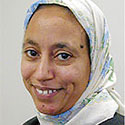Demystifying NGO access to UN humanitarian funding: Follow-up questions
On 12 October 2016, PHAP and ICVA organized the second session in their learning stream on humanitarian financing. The event focused on NGO access to UN humanitarian funding, featuring presentations from both UN agencies and NGO partners. Apart from answering questions live during the event (which you can listen to in the event recording), the guest experts have also answered follow-up questions from the event participants, which you will find on this page.
“Have there been any reviews or evaluations of the effectiveness and efficiency of UN humanitarian funding arrangements? Have barriers for the rapid disbursement of funds in response to new onset crises improved over time?”
- Policy Analyst, intergovernmental organization, France

Fatima Sherif-Nor
There have been numerous reviews with varying focus and methodology. Some of the needed improvements for expediting signing agreements and realizing funds that these have highlighted include: all stakeholders should participate in prompt negotiations on budget and terms of agreement; processes leading up to the disbursement of funds should be simplified; and possibilities of multi-year funding should be improved (for example, UNHCR currently relies on annual funding – changing this however also requires improved flexibility of donors).
“At what stage are UN agencies at in thinking through the implementation of their ‘Grand Bargain’ commitments?”
- Humanitarian Policy Advisor, INGO, Uganda

Fatima Sherif-Nor
Several UN agencies have been active parties in the initiatives leading up to the World Humanitarian Summit (WHS) and Grand Bargain meetings. The UN is guided by the outcomes of the Grand Bargain. Several steps are being undertaken to meet the targets set out in the Grand Bargain, including doubling the cash-assistance to refugees, more support to national first responders, and harmonization of funding processes between UNHCR, WFP, and UNICEF.
“How can an organization work with UN agencies in order to include HQ costs as direct costs for project implementation? Although HQ staff perform a number of activities directly related to project implementation in the project countries (technical advisory, M&E, data collection and processing, among others) it has become very complicated to include direct HQ costs as part of the project delivery.”
- Project Controller, INGO, Netherlands

Fatima Sherif-Nor
UNHCR and other UN agencies provide about 7% to support HQ costs as part of the cost for administering field operations, which is a delineated budget category.
“Any tips or common mistakes you would point out in relation to NGOs’ grant proposals?”
- Director, NGO, Benin

Fatima Sherif-Nor
In the case of UNHCR, make the proposal succinct and relevant to the needs of refugees/ persons of concern, in a way that makes it clear how it brings added value to the partnership.
“If you are looking at your WFP’s portal for partners, what is your thinking of aligning this with future developments with the International Aid Transparency Initiative (IATI) and the Financial Tracking Service (FTS)?”
- Director of Humanitarian Grants, INGO, UK

Marcus Prior
WFP already reports at a very high level into both IATI and FTS, but neither of them represent a particularly viable tool for day-to-day management of operational partnerships, which is the context in which we are considering the possibility of a portal. However, alignment with these systems certainly makes sense considering the financial data that any portal would “process” would also be valuable for further analyses.
“How does UNHCR plan to deal with donor fatigue in the cases of refugee camps which have been existing for decades?”
- Executive Director, NGO, India

Fatima Sherif-Nor
There is renewed impetus and drive from processes such as the World Humanitarian Summit, the Grand Bargain, the Refugee Compact, and others. In these processes, UNHCR is aiming at promoting the opportunity to foster nexus between humanitarian and development work and drive solutions for protracted refugee situations, while maintaining the right of refugees to voluntarily return home, when safety prevails.
“Given that UNHCR wants to be involved with partners in response planning, does UNHCR see more progress in moving away from detailed accounting reports that focus on spending inputs and rather allow more summarized budgets and more output or even outcome based reports to justify grant use?”
- Finance/Audit Coordinator, INGO, Switzerland

Fatima Sherif-Nor
The budgeting is based on UNHCR’s Result-based management (RBM) Framework. UNHCR is currently looking into a full review and improvement of its RBM to further simplify and make it more relevant. It is a big scheme covering the planning as well as the level of budgeting, not only for partnerships but also for UNHCR’s own processes.
You can access the rest of the Q&A as well as further resources on the event page.